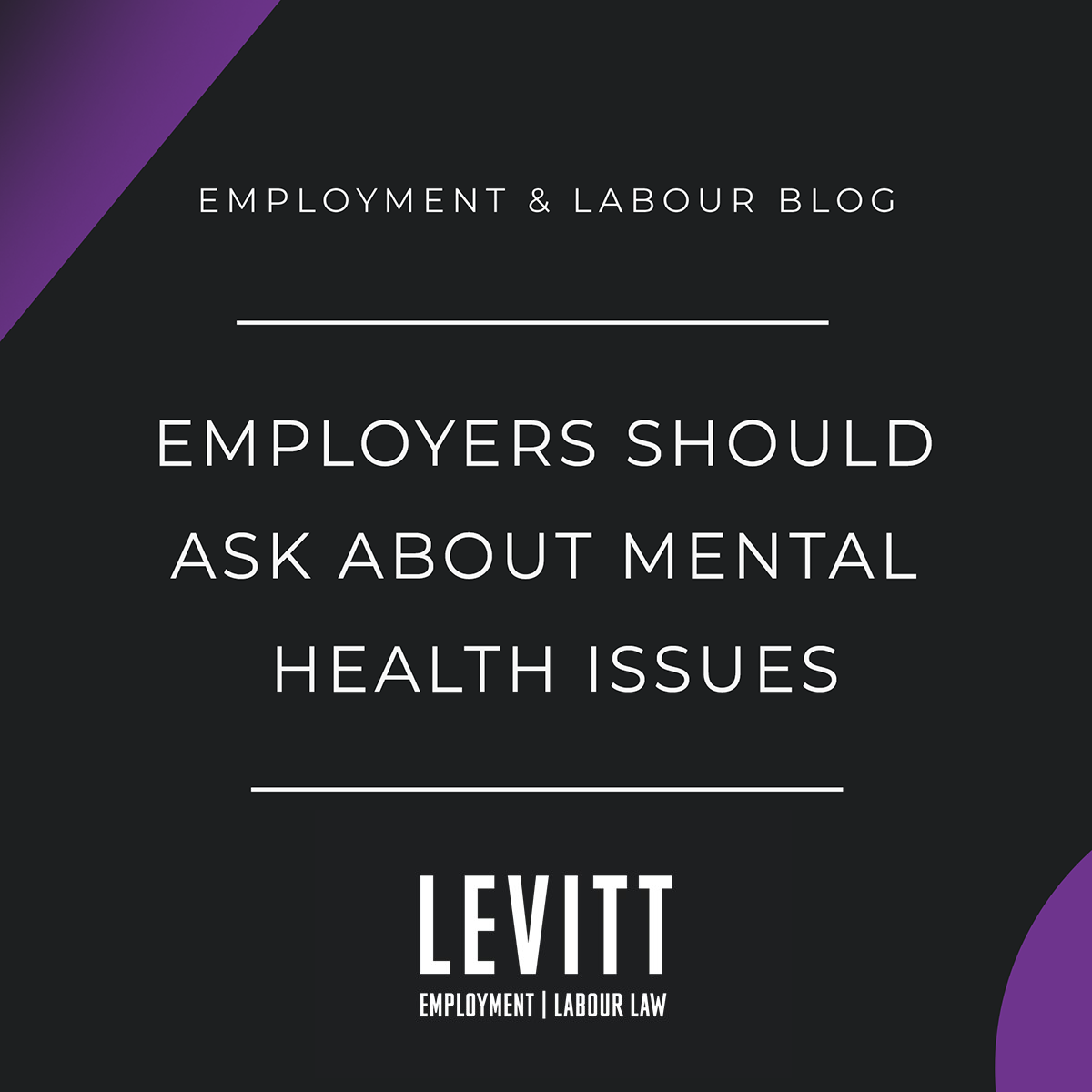For most people, their disabilities are invisible. Many can seem healthy and fine, but they could be operating under a guise, secretly struggling with addiction, depression, or other issues related to workplace stress. Mental health issues have been on the rise due to the current work-at-home situation.
Some employees with underlying disabilities may be viewed as unmanageable or difficult by their employers; however, employers cannot terminate them for this reason. Employers have a legal obligation to help and accommodate employees, despite any costs that might arise until the point of “undue hardship.” However, many employers dismiss employees for mental health-related reasons and can find themselves served with a human rights complaint or a possible lawsuit.
As an employer, dealing with human rights complaints is expensive and embarrassing. Tribunal decisions regarding human rights are public, and if they are tabloid material, they can often be quite publicized. Therefore, employers need to learn what it means to accommodate employees with disabilities, whether it is a physical and visible or invisible mental health issue.
If an employee has a physical disability, the employer must provide adjusted work assignments until the employee can resume doing their former work at full capacity.
What about when an employee has a mental disability? Many employees are shy, embarrassed, or uncomfortable talking to their employer about psychiatric issues. Where an employer is aware or ought to be aware that there may be a relationship between a disability and someone’s job performance, the employer has a “duty to inquire” if the employee has a mental health disability. Once an employer learns that a possible medical issue such as a mental health issue exists, the employer must offer assistance and accommodation.
Employers should be observant. Employees who may be suffering might display consistent behaviour or ask for time off for stress or anxiety. Pay attention and ask questions. This is important in situations where an employee may have already confided in their employer about their mental health. Ask them how their work performance might be affected as a result of this. Finally, ask for medical documentation. Employers have the right to make inquiries into medical health. If an employee asks for a lot of time off, the employer should request documentation to ensure it has met their obligations under the Ontario Human Rights Code. Finally, train your management team and supervisors on dealing with mental health issues in the workplace. You don’t want to be caught up in a human rights or disability claim.






